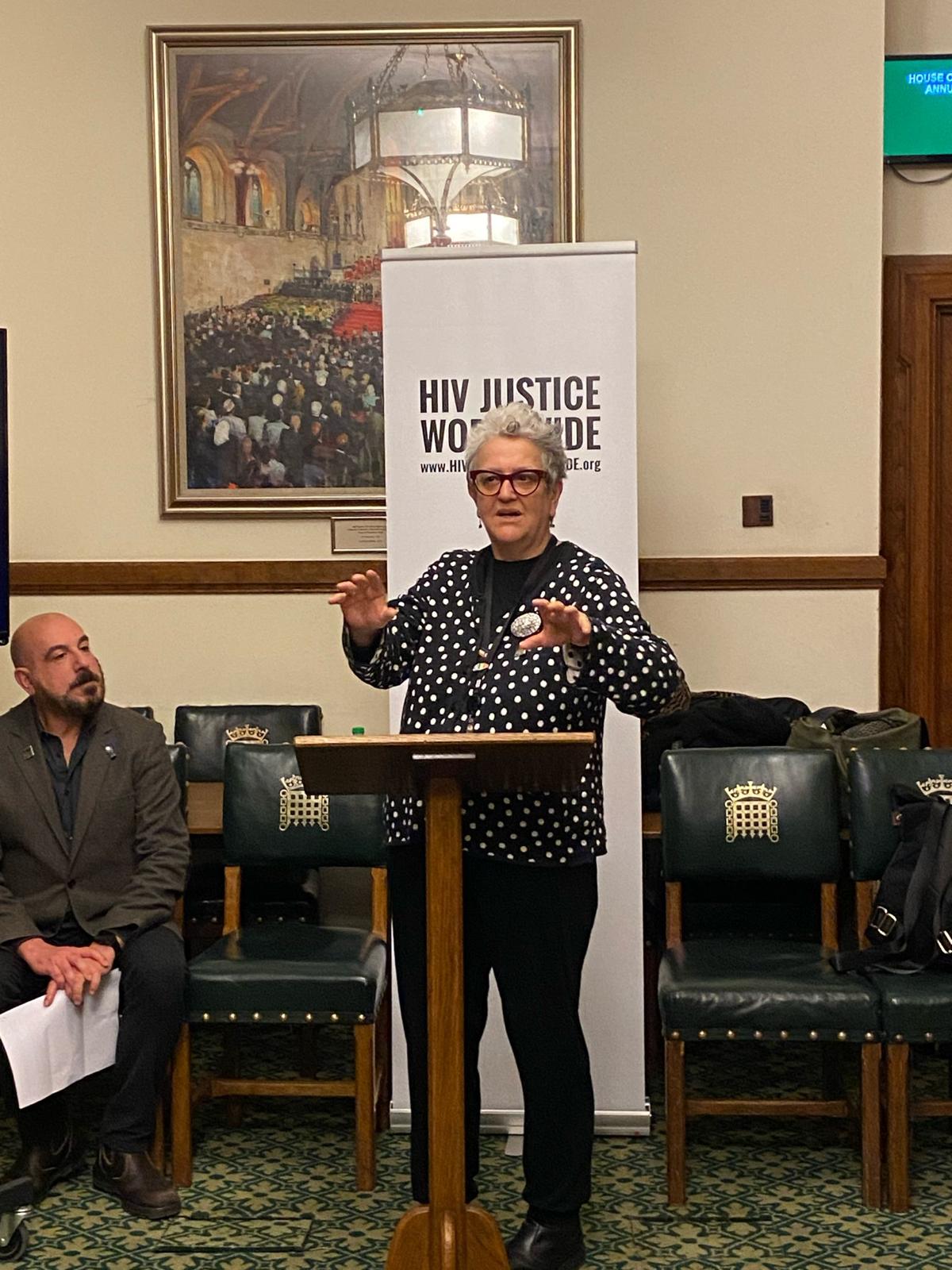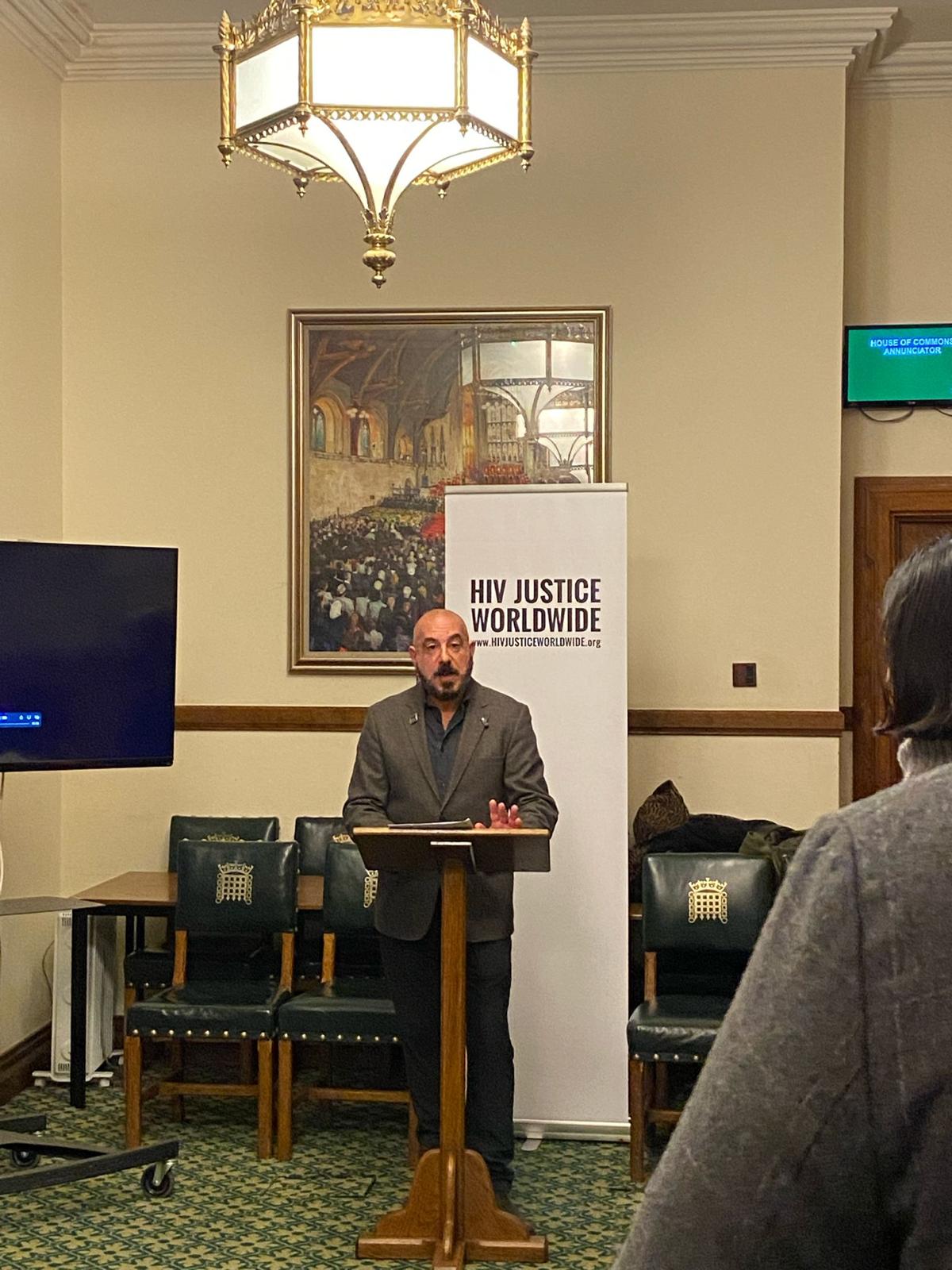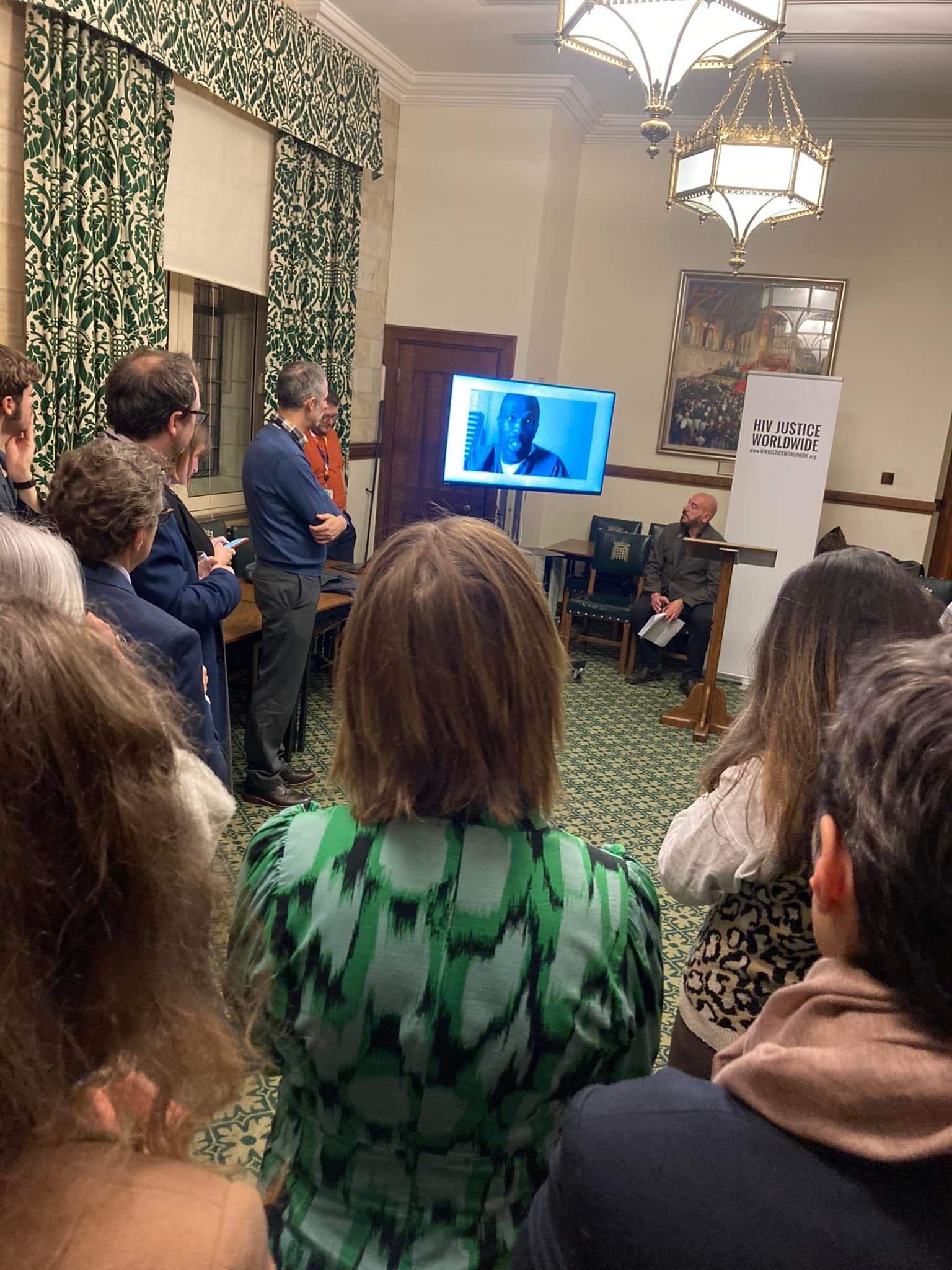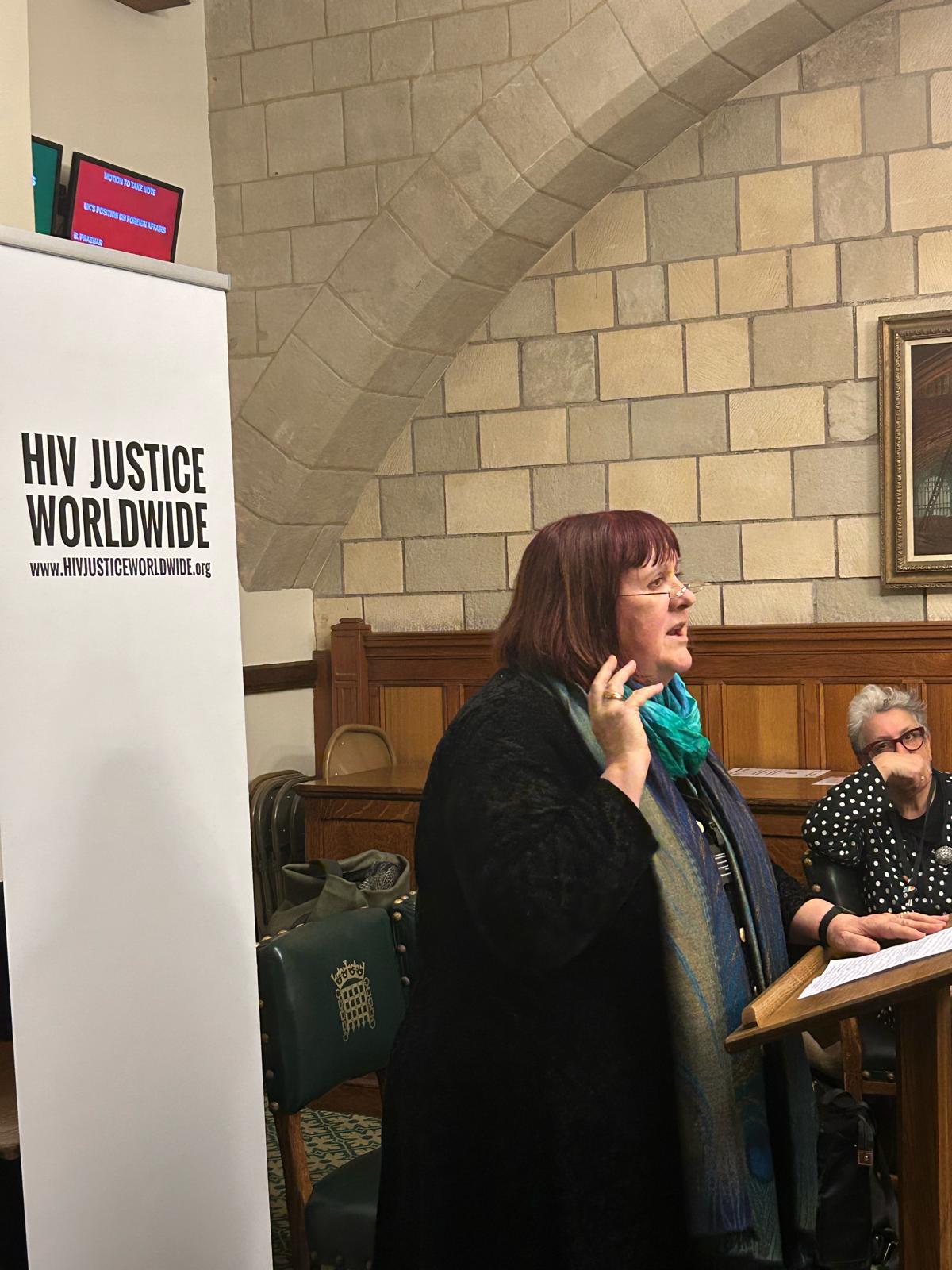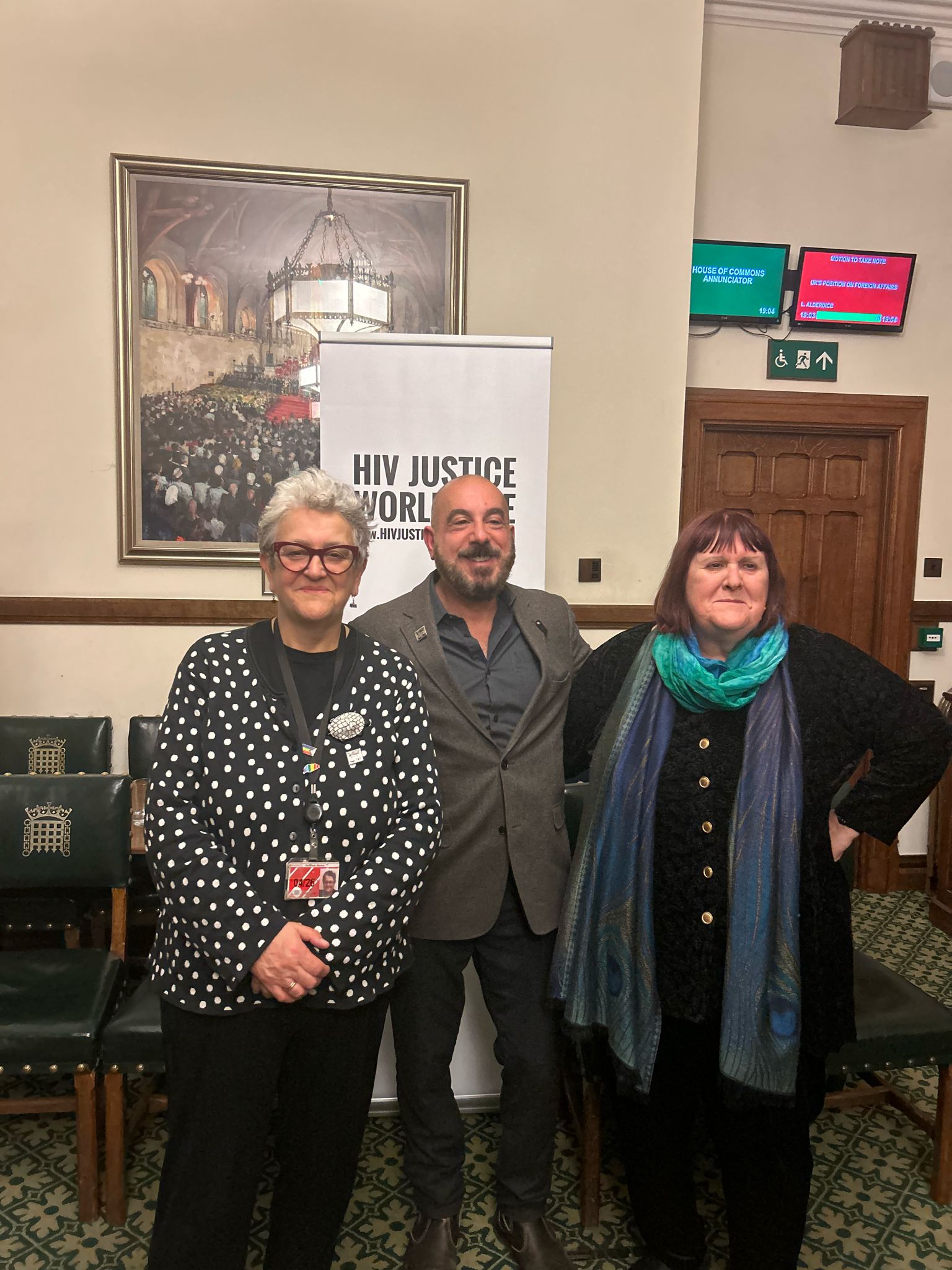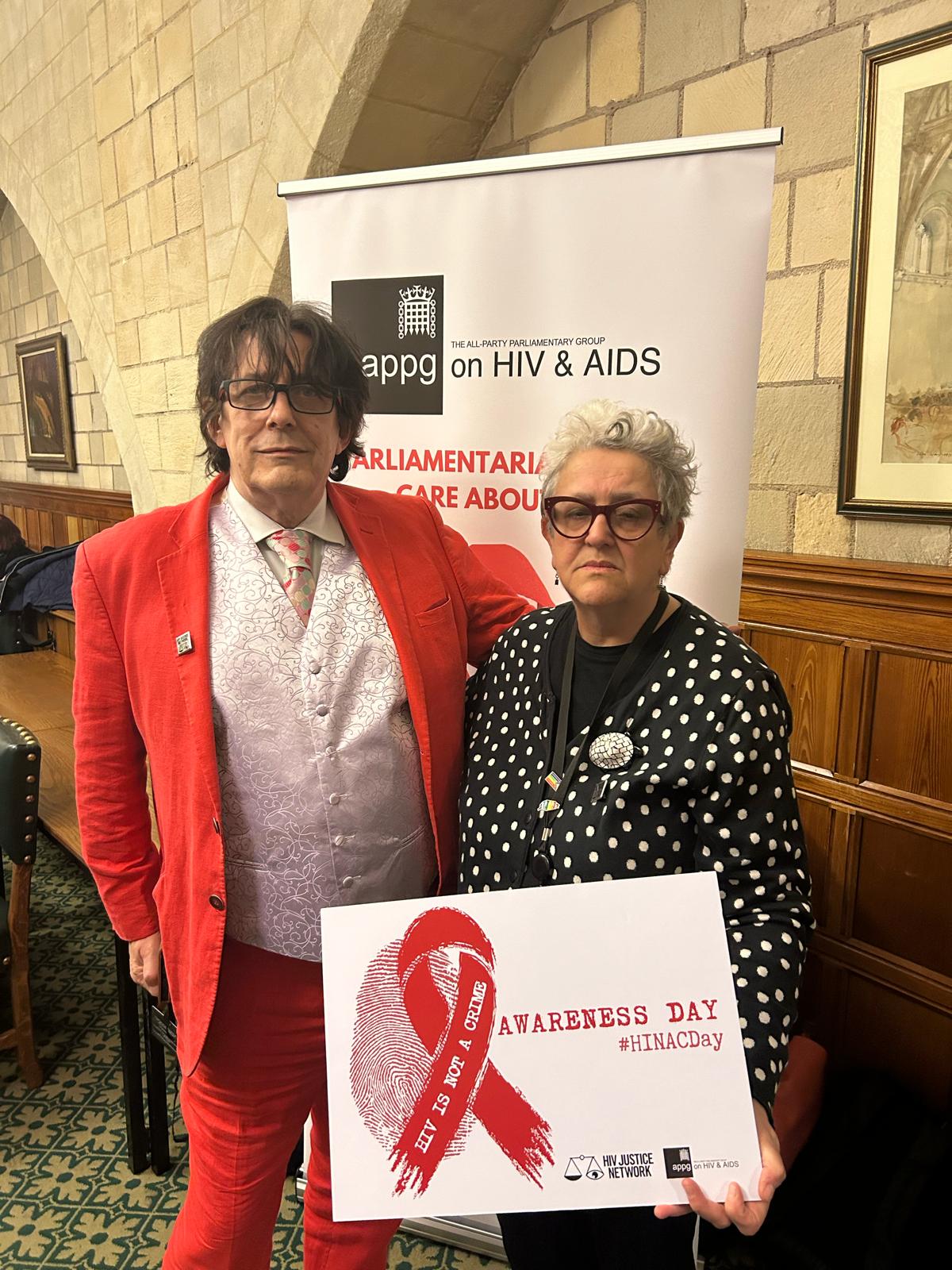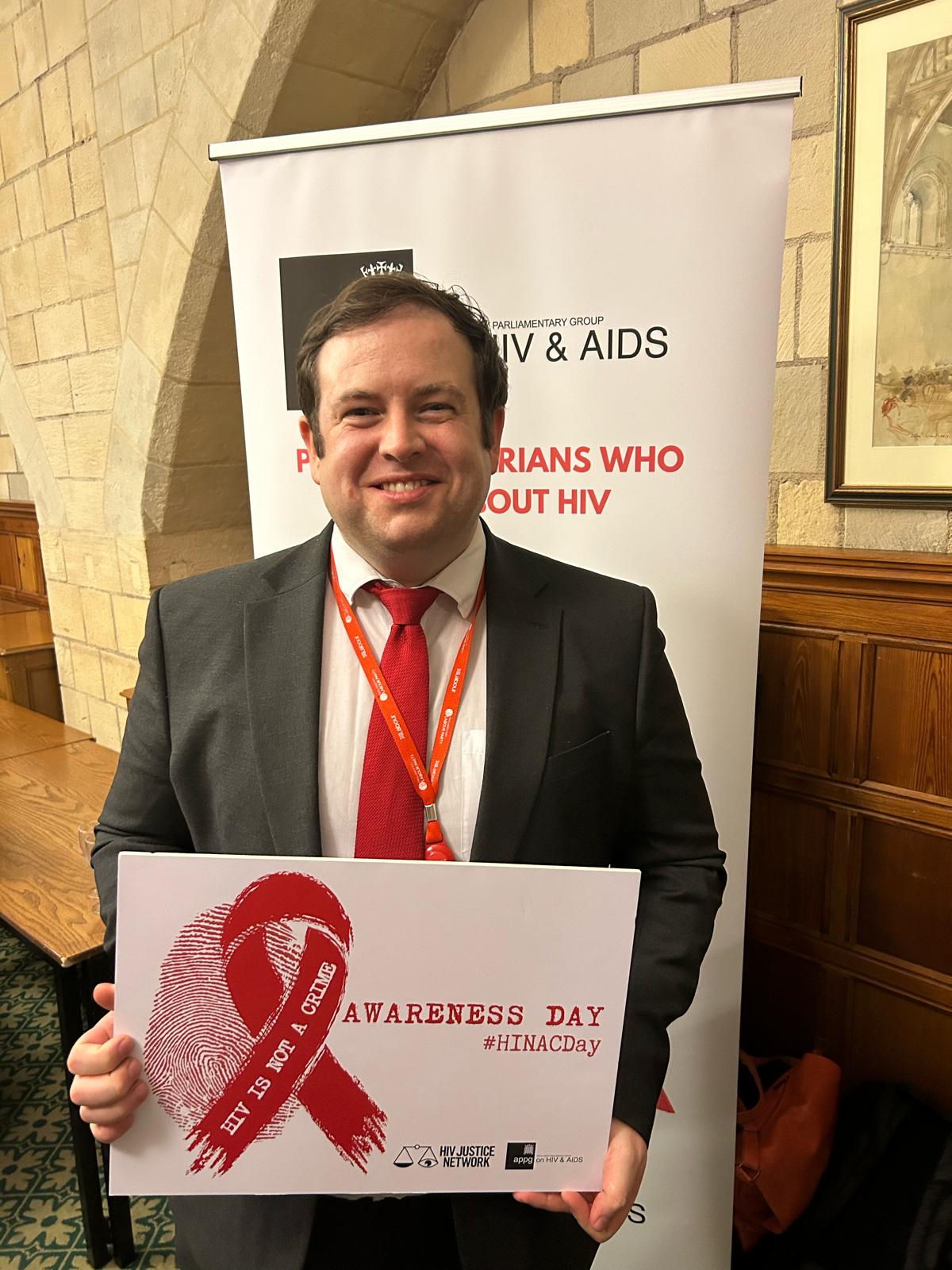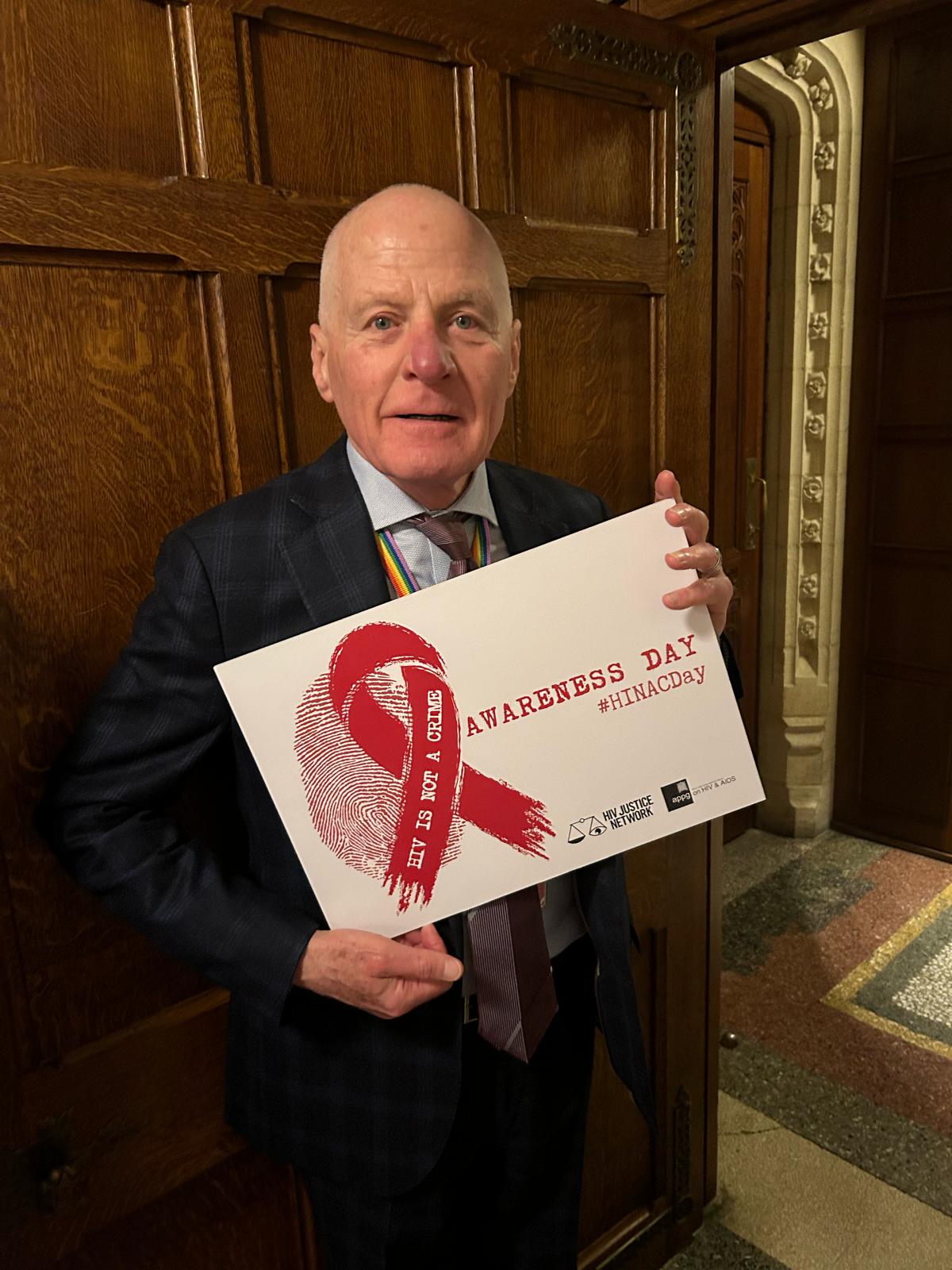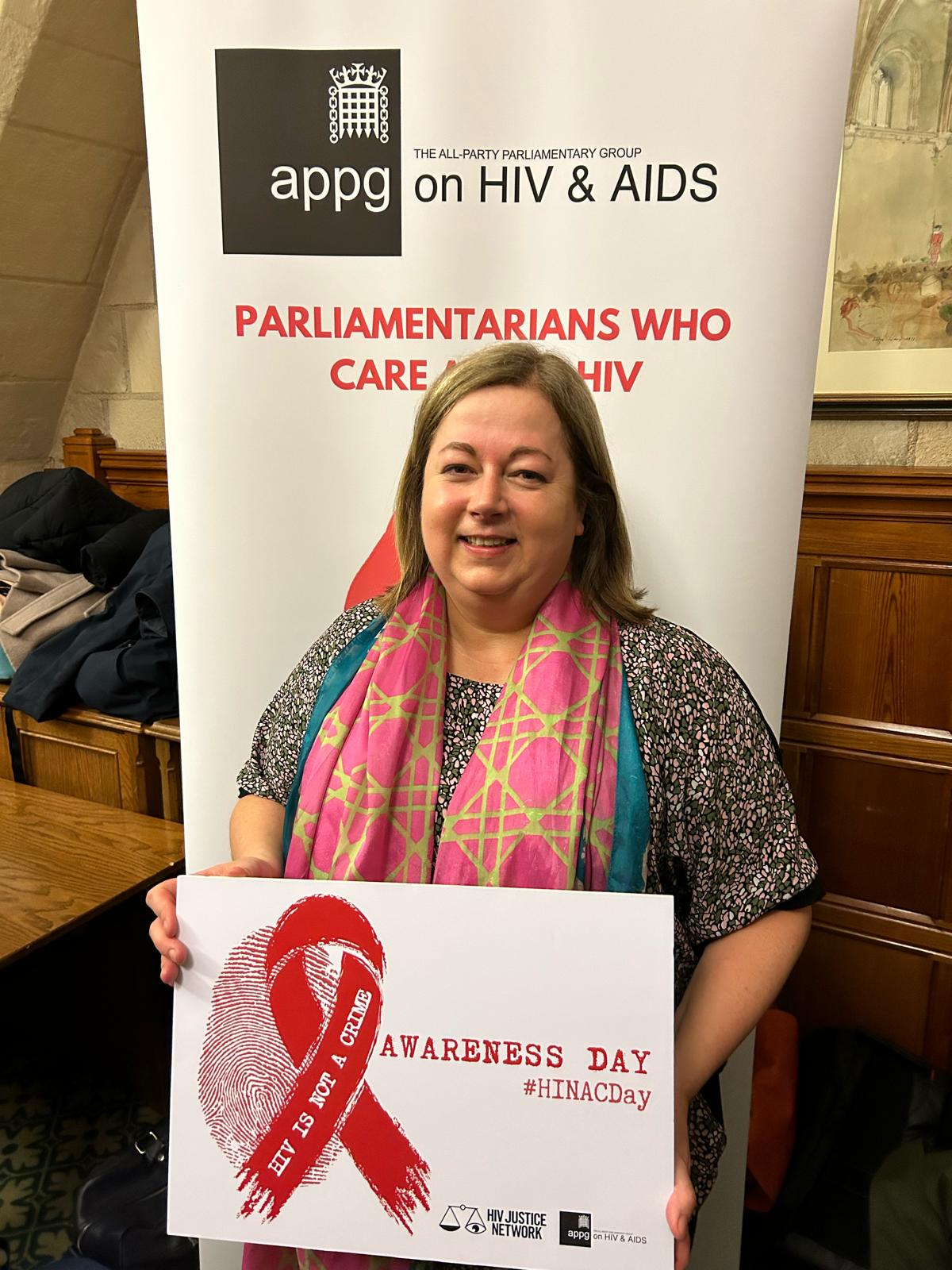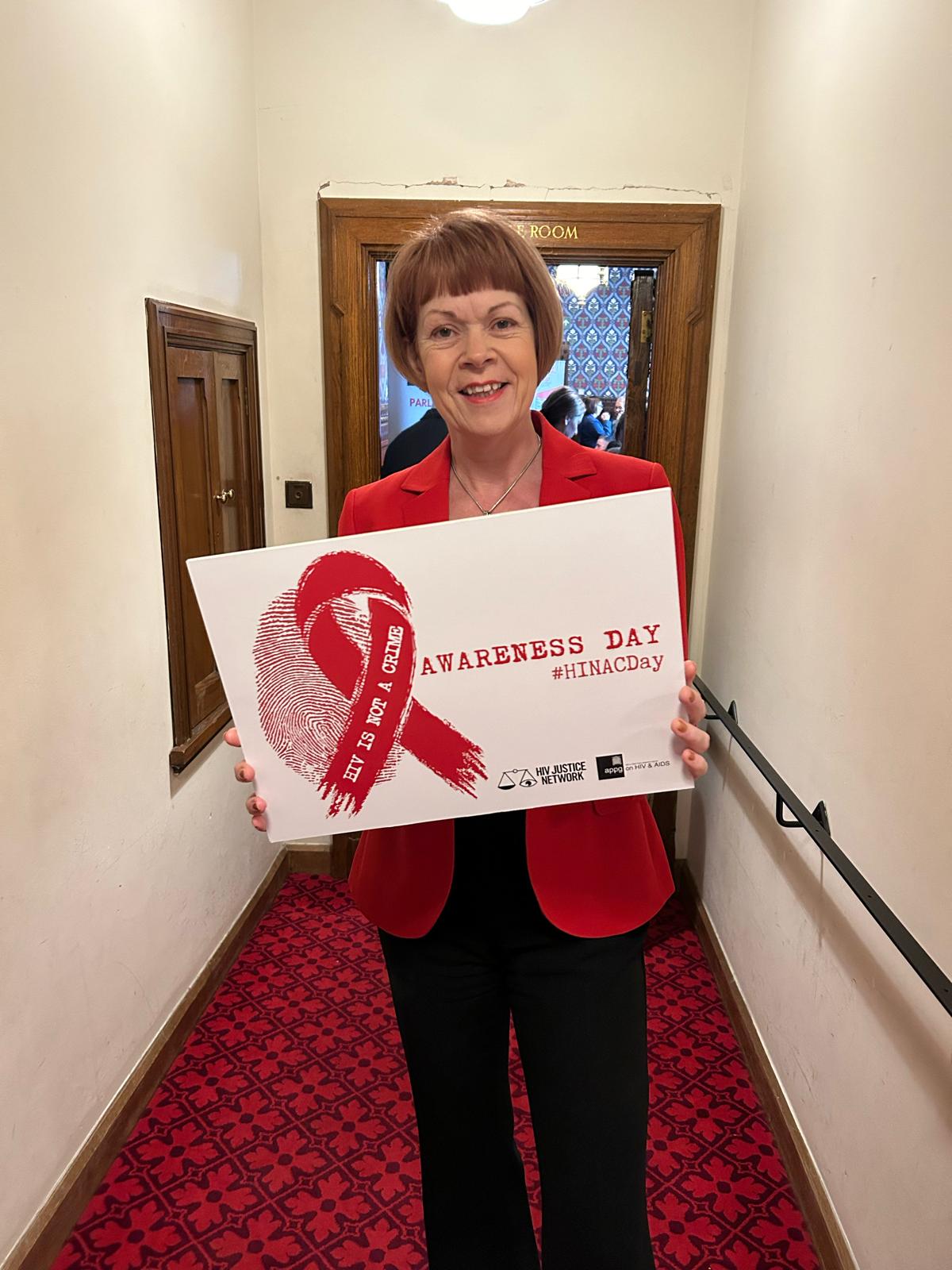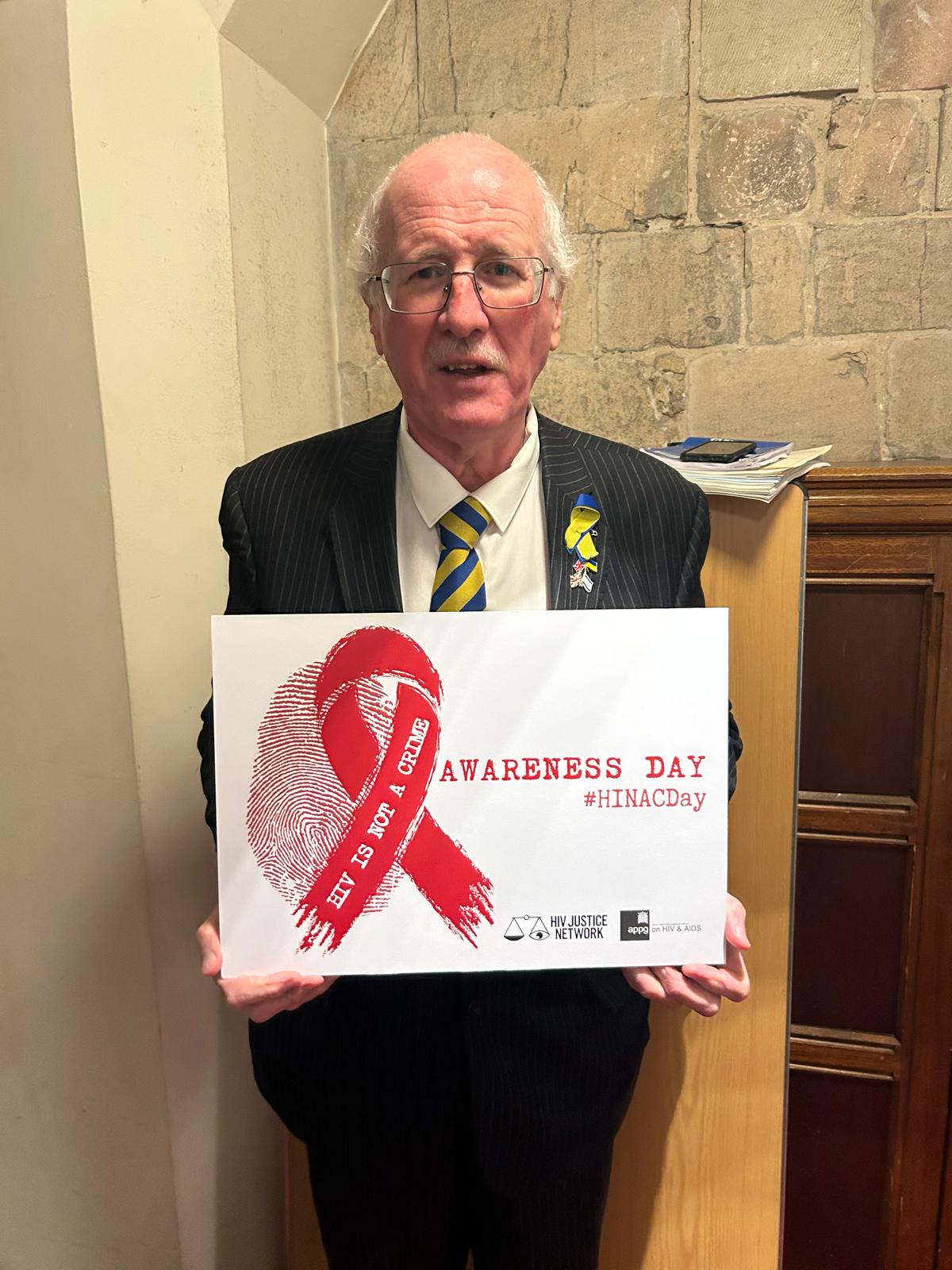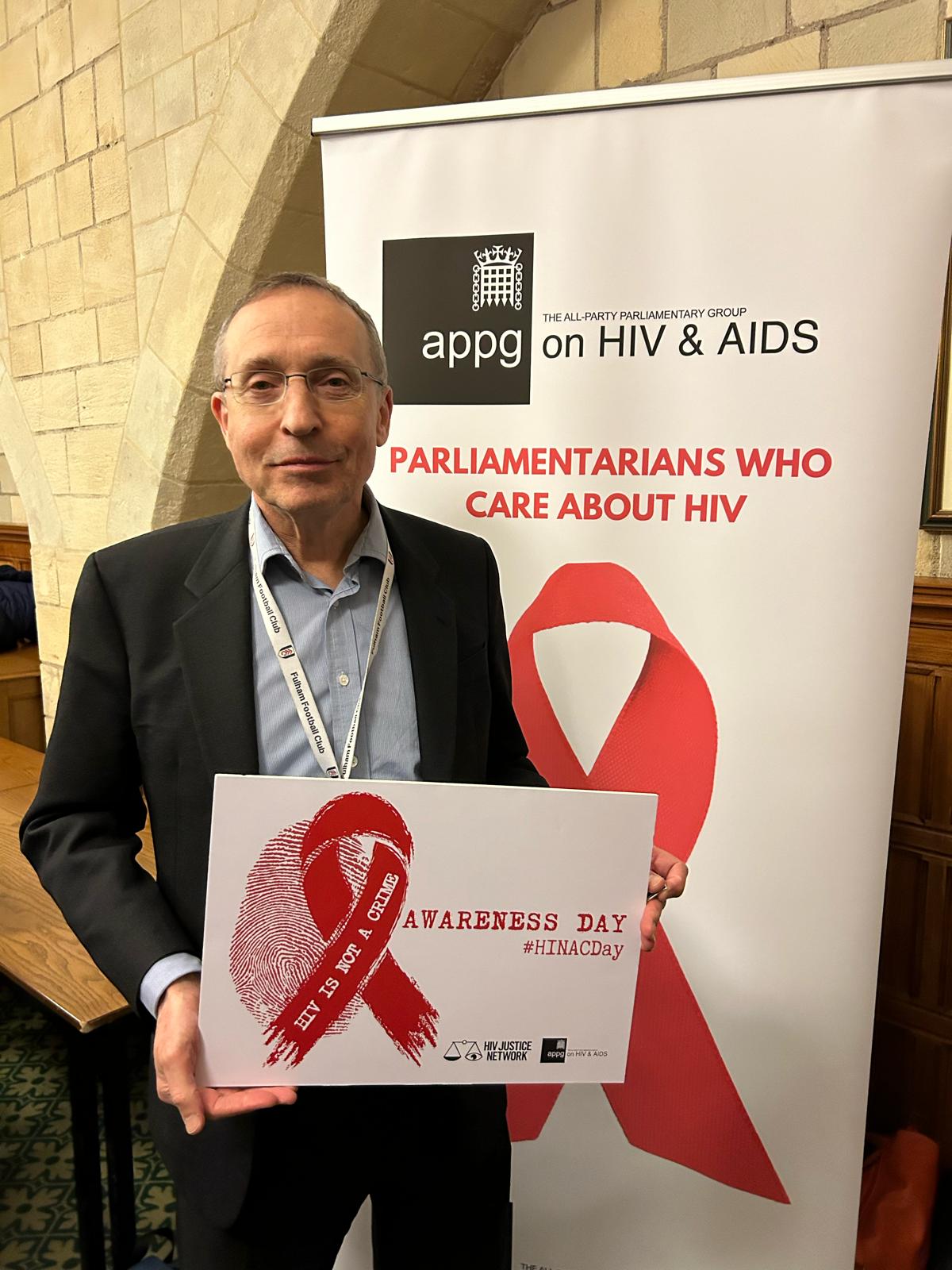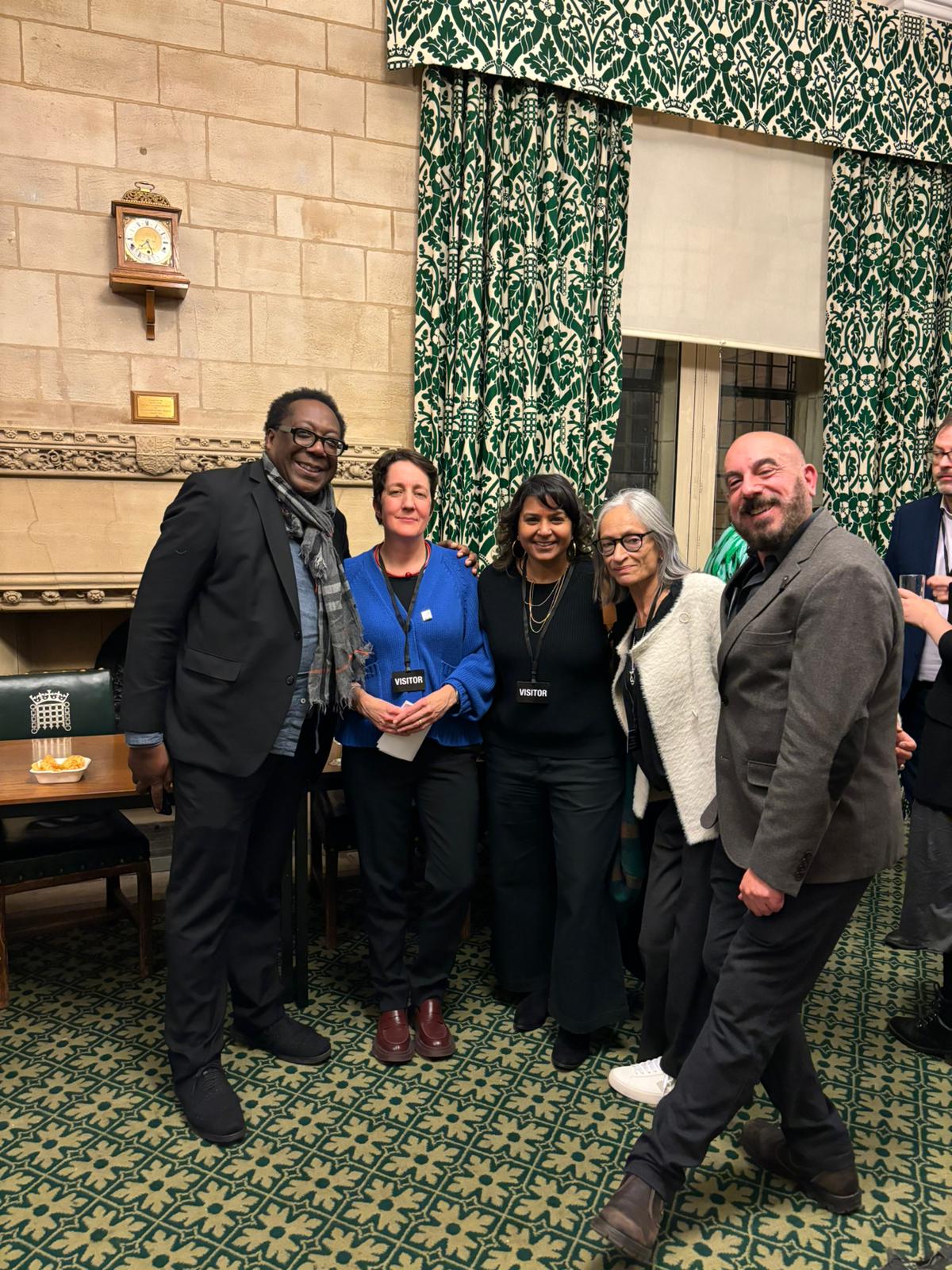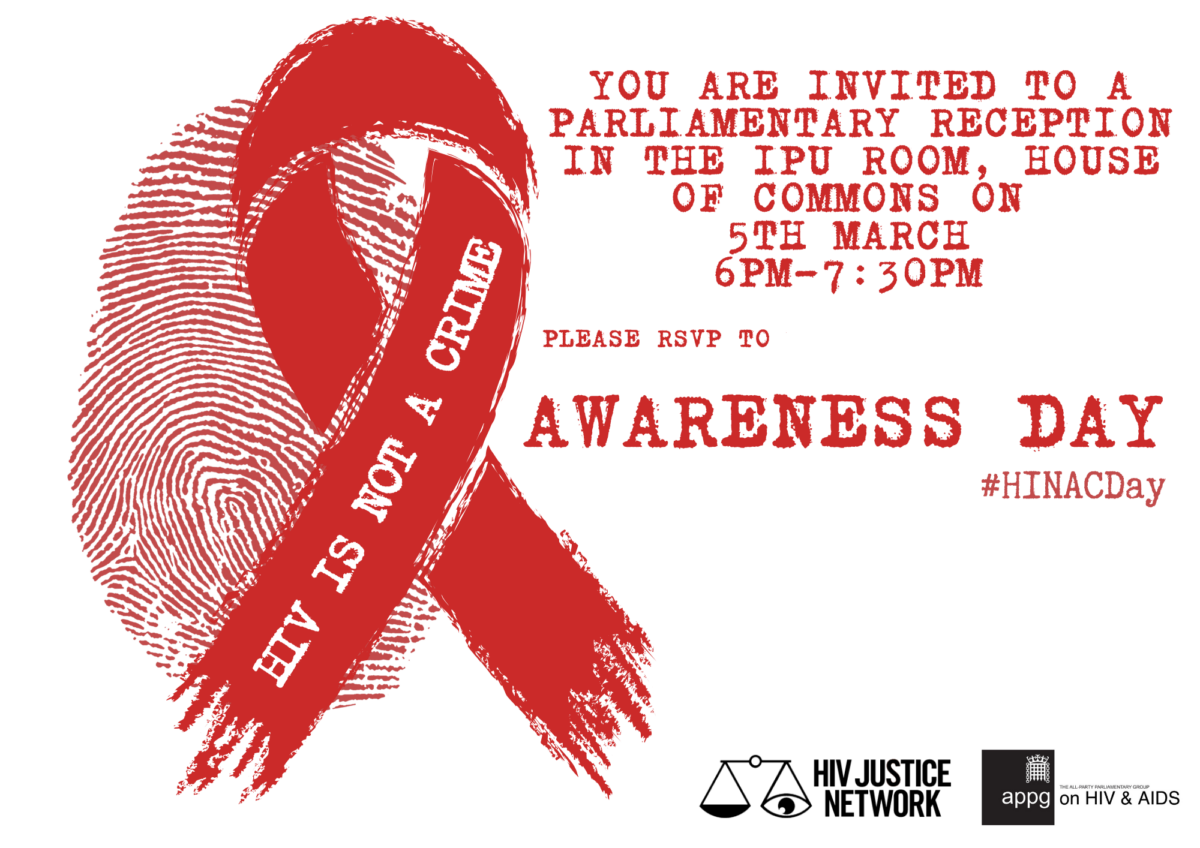
On Tuesday 5th March the HIV Justice Network hosted a reception with the All Party Parliamentary Group for HIV, AIDS and Sexual Health (APPGA) to mark the first global HIV Is Not A Crime Awareness Day.
Baroness Barker, co-chair of the APPGA, Lisa Power former Policy Director at the Terrence Higgins Trust and the first chair of the HIV Justice Network’s Supervisory Board, spoke alongside our Executive Director, Edwin J Bernard. The SERO Project’s, Kerry Thomas, an HIV criminalisation survivor and activist, appeared via video.
The event was attended by MPs and members of the House of Lords, as well as representatives of the UK and US governments, the Global Fund, UNAIDS, HIV philanthropic funders, and UK and international HIV policy organisations.
Edwin presented global and Commonwealth data, based on a briefing paper especially undertaken for the event by our policy analyst, Elliot Hatt, which demonstrated that the Commonwealth is far behind global HIV criminalisation law reform trends.
In the past five years, there were more adoptions of HIV criminalisation laws than there were repeals or reforms in the Commonwealth, whilst globally this was reversed. Notably, the United States – formerly a world leader and exporter of HIV criminalisation – was now a world leader in ending it.
“It’s time for the UK to do the same, domestically, and throughout the Commonwealth,” he said.
UPDATE 22nd March: The Parliamentary event and our Commonwealth analysis led to questions being asked in Parliament by APPGA co-chair, Florence Eshalomi MP.
Co Chair @FloEshalomi has asked @FCDOGovUK @FCDOHumanRights what they are doing to help encourage the repeal of HIV specific laws in 20 jurisdictions within the @commonwealthsec
Laws must follow science. Especially where someone living with HIV on treatment cannot pass it on. pic.twitter.com/tggZs5NaNE
— APPG on HIV, AIDS & Sexual Health (@APPG_HIV_AIDS) March 18, 2024
To ask the Minister of State, Foreign, Commonwealth and Development Office:
What steps he is taking to help encourage the repeal of HIV specific laws in the 20 jurisdictions in the Commonwealth that still have them.
Whether his Department is providing support to (a) the HIV Justice Network and (b) other organisations working to repeal HIV-specific laws globally.
These questions were answered by Andrew Mitchell MP Minister of State for Development and Africa with the same answer for both questions:
Addressing stigma, discrimination and criminalisation is critical to ensuring equality of access to HIV prevention, testing and treatment services and to achieving progress in the global HIV response.
The UK is a champion of human rights around the world and we are committed to the principle of non-discrimination on any grounds, including on the basis of sexual orientation or gender identity. The UK’s network of over 280 Diplomatic Missions monitor human rights in host countries.
At the UN High Level Meeting on HIV in June 2021, the UK worked hard to secure the highest level of commitment from our global partners and garner support for the ambitious, rights-based Global AIDS Strategy 2021-2026, so the world has the best chance of meeting the 2030 goal to end AIDS. We also endorse the Global Fund’s 2023-2028 Strategy, with a focus on addressing inequities and structural drivers of HIV infection and AIDS-related deaths including barriers to services due to stigma, discrimination and criminalisation.
Our funding to the Robert Carr Fund and to UNAIDS helps to support legal and policy reform to combat stigma, discrimination and criminalisation, and to improve access to HIV services for those most at risk, as well as supporting civil society and grassroots organisations to challenge harmful policies and attitudes that exclude minorities and put them at greater risk of HIV infection and increase access to services for these groups.
We are grateful to the UK’s leadership, and its support of the Robert Carr Fund – which funds much of our work, and that of the HIV JUSTICE WORLDWIDE coalition – which is currently seeking replenishment for the next funding round, 2025-7, and we hope that the UK will be the first to commit to supporting the Fund once again.
